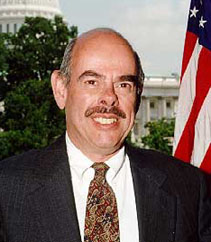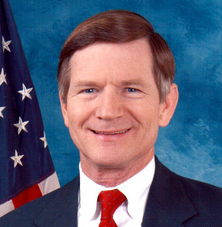 Here’s what happens when you have a communications monopoly:
Here’s what happens when you have a communications monopoly:
The Defense Department isn’t trying to “muzzle” troops by banning YouTube and MySpace on their networks, a top military information technology officer tells DANGER ROOM. Rear Admiral Elizabeth Hight, Deputy Commander of Joint Task Force-Global Network Operations, says that the decision to block access to social networking, video-sharing, and other “recreational” sites is purely at attempt to “preserve military bandwidth for operational missions.”How much bandwidth is it using? We don’t know; the Admiral won’t say.Computer_center_400x Not that the 11 blocked sites are clogging networks all that much today, she adds. But YouTube, MySpace, and the like “could present a potential problem,” at some point in the future. So the military wanted to “get ahead of the problem before it became a problem.”
— Military Defends MySpace Ban (Updated Yet Again), Noah Schachtman, DangerRoom, 18 May 2007
Now if the U.S. military’s real reason is to keep the troops from posting information that could get some of them killed, I could understand that. But if so, why are they trotting out this lame excuse? And for that matter, why is the U.S. commander in Iraq saying military blogs are providing good accurate descriptions of the situation on the ground? Continue reading

 I wasn’t going to comment on the disconnection of
I wasn’t going to comment on the disconnection of

 Hands Off the Internet conflates more things that just aren’t the same.
First, they quote a recent story by a college physics sophomore:
Hands Off the Internet conflates more things that just aren’t the same.
First, they quote a recent story by a college physics sophomore:
 Nope, what we want you to know is that the big telcos that are the
primary Internet Service Providers (ISPs) in the U.S. these days
had nothing to do with inventing our modern Internet.
They also had very little to do with commercializing it.
The first two geographically distributed commercial ISPs
were UUNET and PSINet, back in 1990.
AT&T, MCI, Sprint, and all the other telcos horned in on the party
years later.
Nope, what we want you to know is that the big telcos that are the
primary Internet Service Providers (ISPs) in the U.S. these days
had nothing to do with inventing our modern Internet.
They also had very little to do with commercializing it.
The first two geographically distributed commercial ISPs
were UUNET and PSINet, back in 1990.
AT&T, MCI, Sprint, and all the other telcos horned in on the party
years later.


 Rep. Lamar Smith (D-Austin) recently (9 Apr)
said he didn’t understand net neutrality
Rep. Lamar Smith (D-Austin) recently (9 Apr)
said he didn’t understand net neutrality
 Creative Voices sums up recent FTC and FCC actions (or lack thereof)
on net neutrality:
Creative Voices sums up recent FTC and FCC actions (or lack thereof)
on net neutrality: